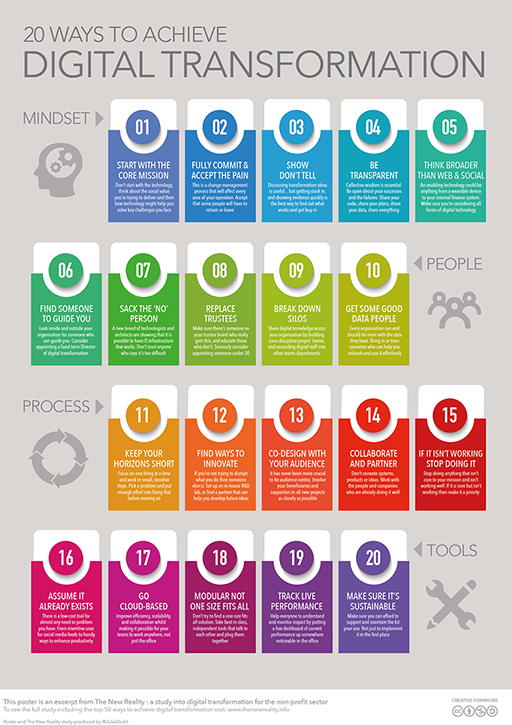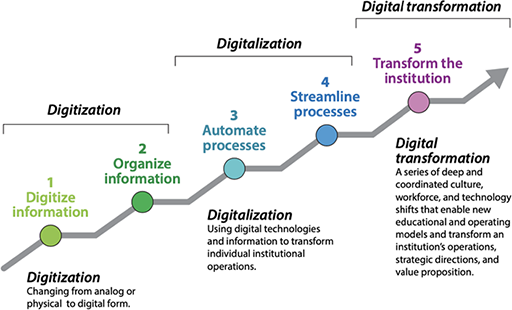6 Digital futures: digital transformation
Digital transformation accelerated during the pandemic:
According to a new McKinsey Global Survey of executives, their companies have accelerated the digitization of their customer and supply-chain interactions and of their internal operations by three to four years. And the share of digital or digitally enabled products in their portfolios has accelerated by a shocking seven years
Digital transformation is how organisations implement business models that consider and leverage the development of technology. It aims to enhance the capability of its people and develop processes to ensure it can succeed in the future.
This rapid acceleration has seen companies introduce temporary solutions that are now embedded and evolving to meet the need for new ways of working. For organisations and individuals this will require the resilience to continue to work with uncertainty and learn new skills as new technology is adopted.
Some key themes organisations are considering for the future include:
- automation of business processes – machine learning and artificial intelligence (AI)
- cloud computing
- use of data to drive decision making
- attracting talent with the right digital capabilities
- zero-trust approach to security
- how the metaverse will develop
- sustainability – reaching net-zero, and carbon footprints.
In the video contributors explain what organisations need to consider for digital transformation and the digital capabilities required for the future:

Transcript
We are frequently hearing the term ‘the 4th Industrial revolution’. In the following video, Jessica Leigh Jones MBE, Chief Executive Officer of iungo Solutions briefly explains what this means.

Transcript
Activity 20 What is driving digital transformation?
Read The 5 great shifts driving digital transformation (digileaders.com) [Tip: hold Ctrl and click a link to open it in a new tab. (Hide tip)] ,which explores some of the areas that leaders of organisations need to consider, and The New Reality group’s research themes and then use the infographic from it to think about what is needed to enable digital transformation in your organisation.
Which steps seem appropriate or most relevant in your context?
Activity 21 Explore what digital transformation for HEIs might involve
Explore the resources below:
Dx: Digital Transformation of Higher Education | EDUCAUSEConsider the Three Ds When Talking about Digital Transformation | EDUCAUSE
Educause suggest the three Ds in the image below. Where do you feel your HEI is in its journey to digital transformation?
Digital transformation has to be considered in the wider context of organisational development and the environment you are operating in, including reducing carbon emissions to reach net-zero by 2050.


